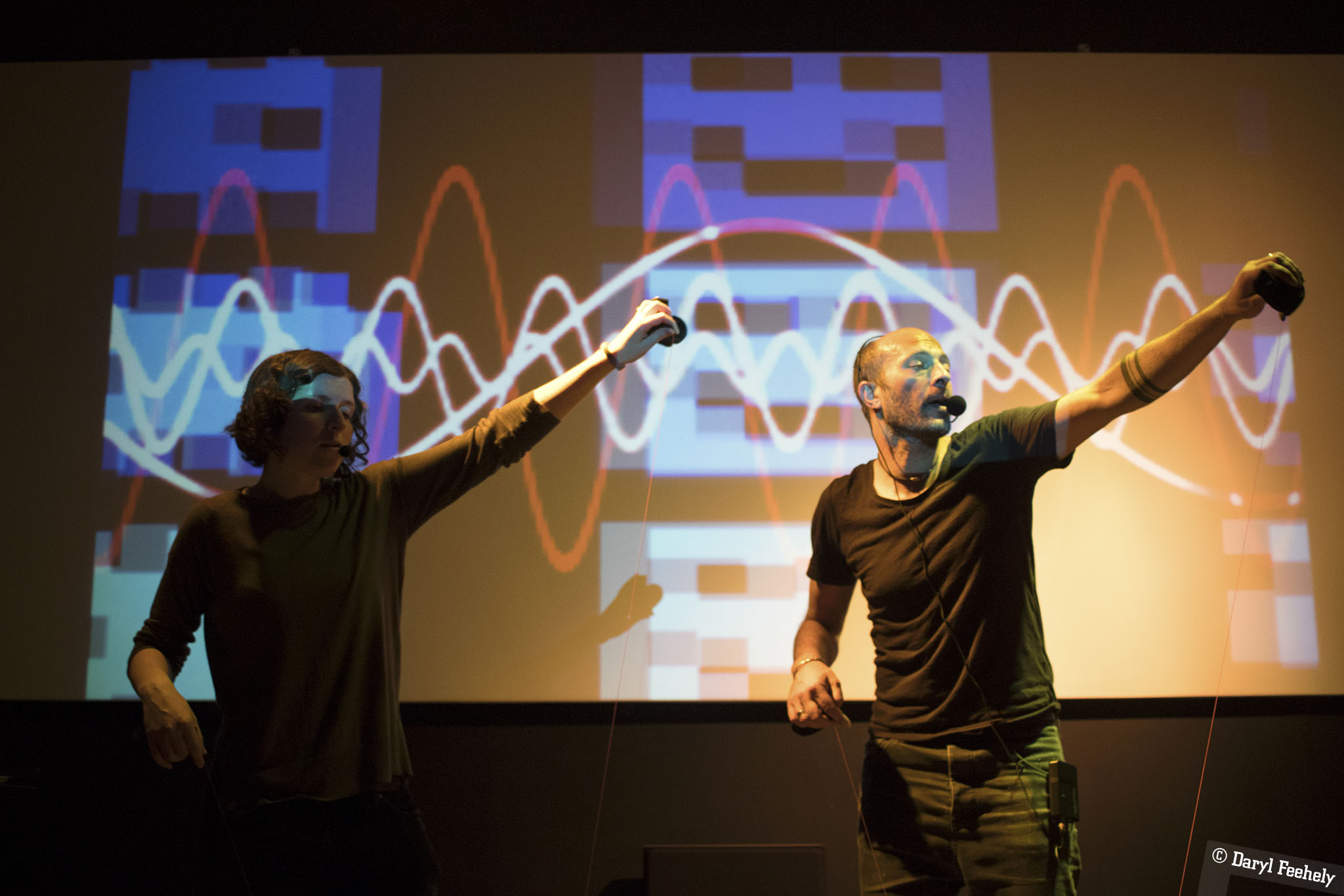
February 8, 2019, by jicke
Musical composition and its impact on culture and research
Music and Computer Science may at first appear to sit at opposite ends of the spectrum, but new and creative ways of composing music based on algorithms and complex mathematical structures are enabling researchers and composers to develop new pieces of music which are being performed in the UK.
One of these pieces is ‘Pen Dinas in Voice’ composed by Dr Alan Chamberlain from the University of Nottingham and is being performed live at Bangor Music Festival by Jenn Kirby and Simon Kilshaw from Swansea Laptop Orchestra. The piece is inspired by an ancient Hillfort near Penparcau, Aberystwyth, and brings together site specific field recordings, traditional music, speech and elements from the ‘Numbers into Notes’ software developed by Prof De Roure at Oxford University.
Dr Chamberlain is based in the Mixed Reality Lab at the University, and leads the Culture, Creativity and Technology Group said, “The performers work with the piece using ‘new’ electronic instruments called tethers, which allow them to manipulate and work with sounds in a more choreographed manner. It’s amazing to see and really brings the work to life.”
The piece has also been used in a short film, which will be played at an event held at the Tate modern on the 9th of Feb, called “Living with the Internet of Things”. This brings together ‘reactive’ visual elements and images to create a narrative of the work that has been done this far. As part of the event Prof De Roure will be discussing a new instrument that is being developed. Dr Chamberlain continues: “We are currently designing an artistic installation that will further enable people to engage with the technology. The beauty of this approach is that it could be installed in multiple sites.”
Impact from Research to Culture
Dr Chamberlain recently wrote a soundtrack for the award-winning film, “Into the Looking Glass – how selfie culture is preparing us to meet our future selves”. Since then he has been awarded a place on the Ty Cerdd’s CODI Composer programme, and an award from the University’s EPSRC Impact Acceleration Account to further the impact that his research will have. Dr Chamberlain said; “It’s vitally important to engage the public in research and by bringing music and computer science together we are able to demonstrate the creative potential of our research. The university of Nottingham has a strong culture of interdisciplinary research, which is both beneficial to the economy and to culture – our research in the School of Computer Science, and the Music Department is world-leading.”
Dr Alan Chamberlain is a Composer in Residence at the Computational Foundry, Swansea University, and was awarded a place on Tŷ Cerdd’s CODI Composer (Electronic) programme.
Performances Bangor Music Festival – Pontio, Bangor, 8th of February Living with the Internet of Things – Tate Modern, London 9th of February
No comments yet, fill out a comment to be the first

Leave a Reply